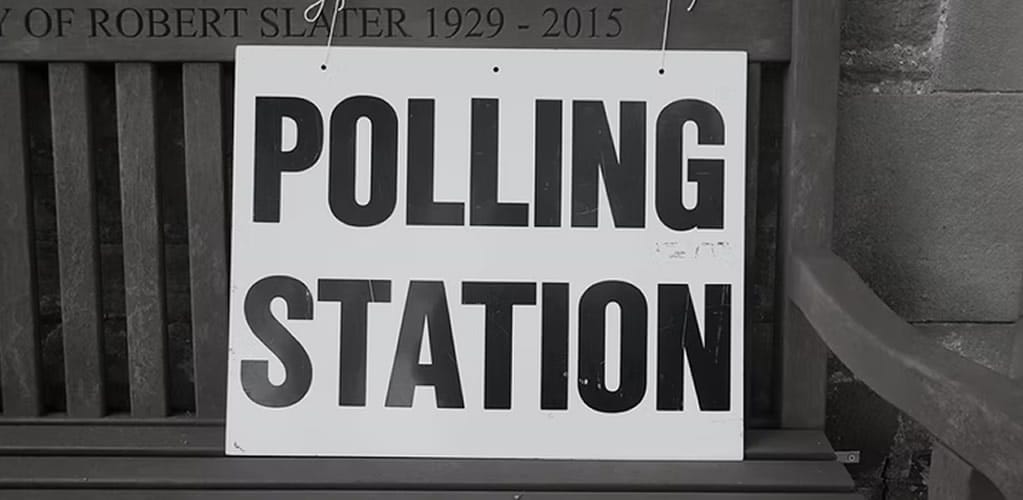Local elections 2022: Your complete guide to the votes happening across the UK.
What to expect for Labour and Conservatives in England and Wales, as the pressure keeps mounting on Boris Johnson? What about Northern Ireland where Sinn Féin are favourite to become the largest party?

What to expect for Labour and Conservatives in England and Wales, as the pressure keeps mounting on Boris Johnson? What about Northern Ireland where Sinn Féin are favourite to become the largest party?
First published: May 2022.
May 5 sees a big set of elections across the UK. In England, there are contests across 146 councils. In London, every council seat is up for election across all 32 boroughs. Elsewhere where there are elections, at least one-third of the council seats are being contested, with some authorities holding all-out polls. There are also elections for council mayors in Croydon, Hackney, Lewisham, Newham and Tower Hamlets, plus one for South Yorkshire metro mayor.
Every council seat is also up for grabs in Scotland and Wales. There are 1,219 seats up for election across 32 local authorities in Scotland and 1,234 in Wales across 22 local authorities.
Meanwhile, Northern Ireland is holding a very important election for its 90-seat Assembly.
In total, across the country, more than 40 million people will be entitled to vote, including 16 and 17-year-olds in Scotland and Wales.
Unlimited access to fact-based analyses, thought-provoking opinions, and expert advice.
Support PMP Magazine todayEngland: Labour defends councils, Johnson fights for his career
In England, Labour has the most councils to defend, 62 in total, as it is mainly metropolitan boroughs and district councils being fought, rather than county “shire” councils, which tend to be Conservative-held. The Conservatives are defending 46 councils and the Liberal Democrats 12. There are 26 other authorities that are currently under no overall control of any party so aren’t considered anyone’s to “lose”. In London, Labour defends twice as many seats as the Conservatives.
The key comparison for English local elections is with 2018, as most of the councillors fighting on Thursday were elected for four-year terms back then. That year, the Conservatives and Labour tied in share of the vote, at 35% each. Current opinion polling has Labour almost 6 points ahead so Keir Starmer’s party can expect to make some headway, gaining a few hundred council seats.
Such gains would also represent a significant improvement for Labour from last year’s local elections when the party performed poorly. Labour, on 29% of the vote, trailed the Conservatives by 7 points, Boris Johnson’s party gaining 235 seats and Starmer’s losing 327. It is highly unusual for a governing party to do so well mid-term.
Since then the prime minister has been embroiled in various controversies – “partygate” being the most prominent. Labour hopes to capitalise. The Conservatives will hope that the government’s “levelling-up” money will help the party in key northern councils. That would indicate the party can hold the swath of unlikely “red wall” parliamentary constituencies gained at the 2019 general election.
A poor Conservative performance would increase the pressure already mounting on Johnson. At the moment, enough of his MPs regard him as an electoral asset to keep him in post. But that could change if the elections go very badly. If they want change, MPs must submit letters of no confidence in Johnson to Sir Graham Brady MP, the chair of their parliamentary party. Once 54 have been sent in, a vote of no confidence would be triggered.
Wales: Tories fret over a key council
In Wales, half of the councils last elected in 2017 are under no overall control. Most may remain so, although Labour, long the largest party in Westminster and Senedd/Assembly contests, may add slightly to its tally of seven councils.
The Conservatives will be anxious to hold onto their solitary council of Monmouthshire but three-seat losses will push it into no overall control. Plaid Cymru should retain Gwynedd, the one council the party controls outright.
Scotland: a battle for second place
Scotland uses the “single transferable vote” system for its local elections, which contributes greatly to no party having outright control of any council – although the SNP has minority control (sometimes in coalition) of nearly half.
The SNP has remained dominant in the elections that have been held for seats in Westminster and Holyrood since the last set of local contests took place in 2017.
In those 2017 contests, the SNP won 35% of the 1,227 council seats up for election. The Conservatives and Labour will battle for second place (and effectively leadership of the anti-independence vote, an issue which arguably pervades even local contests) having obtained 276 and 262 seats respectively. Labour might reverse the order.
No billionaire owner. No wealthy shareholders. PMP Magazine only exists thanks to donations from our readers.
Support our independent journalismNorthern Ireland: a seismic shift on the horizon?
Potentially the most dramatic contest will take place in Northern Ireland. Republican party Sinn Féin starts favourite to become the largest party in a country whose title they do not use (preferring “north of Ireland” or “the North”) and which they want to replace, via a border poll, with a united Ireland.
Becoming the biggest Assembly party would allow Sinn Féin to nominate Michelle O’Neill as first minister, a post previously held by the Democratic Unionist Party (DUP). However, there are doubts whether a governing devolved power-sharing executive can be reconstituted. The DUP withdrew its first minister in February, which meant, under the power-sharing rules, that O’Neill also lost her job as deputy first minister (the powers of the posts are identical).
Unless the post-Brexit sea border between Great Britain and Northern Ireland is removed, the DUP says it would not cooperate in the executive. What therefore comes next after the assembly elections, whether Sinn Féin emerges as the largest party or not, is very unclear.
There is much to play for this Thursday across the UK.

What did you think of this article?
🤩 😀 🤔 😴 😮 😭 🤬 🤯
— AUTHOR —▫ Professor Jonathan Tonge, Professor of Politics, Department of Politics, University of Liverpool. |
GET THEM INVOLVED: |
Sources
- Text: This piece was originally published in The Conversation and re-published in PMP Magazine on 4 May 2022. | The author writes in a personal capacity.
- Cover: Unsplash/Steve Houghton-Burnett. (Licensed under a Creative Commons Attribution-ShareAlike 4.0 International License.)







[Read our Comments Guidelines]